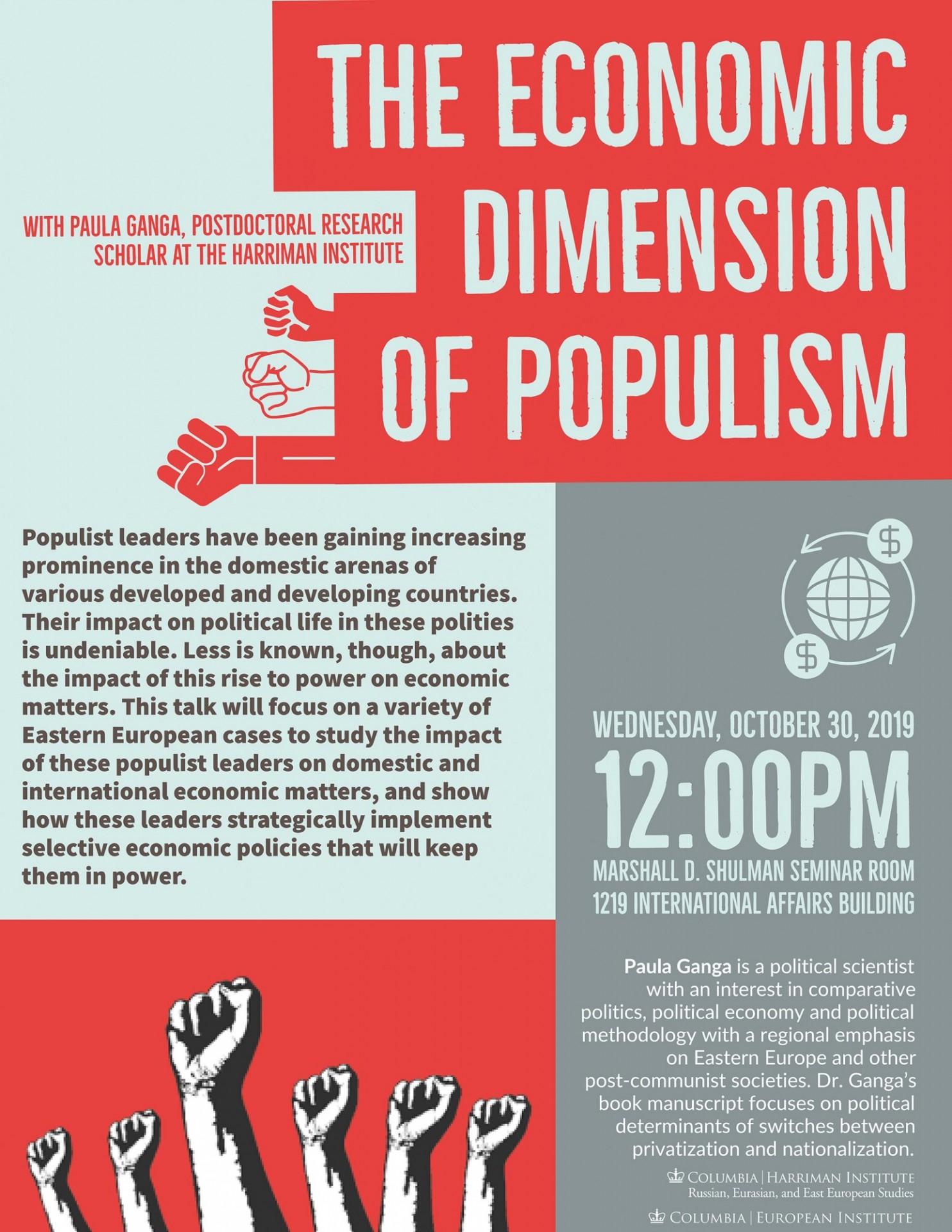Please join the Harriman Institute and the European Institute for a talk with Paula Ganga, Postdoctoral Research Scholar at the Harriman Institute.
Populist leaders have been gaining increasing prominence in the domestic arenas of various developed and developing countries. Their impact on political life in these polities is undeniable. Less is known, though, about the impact of this rise to power on economic matters. This talk will focus on a variety of Eastern European cases to study the impact of these populist leaders on domestic and international economic matters, and show how these leaders strategically implement selective economic policies that will keep them in power. Although globalization has long represented a rallying point for populist leaders, once in power, populist leaders strategically pursue international commitments as long as they help sustain them in power, and shape domestic economic policies in ways that redistribute wealth to close allies and cronies. Such policies result in both railing against the EU and actively pursuing EU funds, as well as a reversal of privatization of banks under foreign ownership and a continuing pursuit of investments from the same countries whose companies saw their assets expropriated.
Paula Ganga is a political scientist with an interest in comparative politics, political economy and political methodology with a regional emphasis on Eastern Europe and other post-communist societies. Dr. Ganga’s book manuscript focuses on political determinants of switches between privatization and nationalization. She examines the economic policy shifts between privatization and nationalization prompted by the interaction of international economic pressures and domestic politics. In this project Dr. Ganga uses an original data set of privatizations and nationalizations since 1950, as well as data from extensive field work in Eastern Europe and shows that populist parties in power may pursue an economic nationalist policy regardless of their formal commitments to international economic openness.
Her major project at Harriman focuses on the Economic Consequences of Populism. The project examines the impact of populists in power both on the prospects for democracy as the way these leaders concentrate power either within state institutions or—more likely—within closed elites around the populist leadership. The economic nationalism and welfare chauvinism emerging from populist rhetoric and gathering ever increasing support across Europe and elsewhere threaten to reshape the domestic and global economic landscape. Dr. Ganga’s research bears directly on how nations view the link between democracy and market capitalism, populism, rising illiberalism in recent political transitions and state capitalism.
Before coming to the Harriman Institute, Paula was a Postdoctoral Fellow at the Skalny Center for Polish and Central Eastern European Studies, University of Rochester, and a George F. Kennan Short-term Scholar at the Woodrow Wilson Center for International Scholars.
